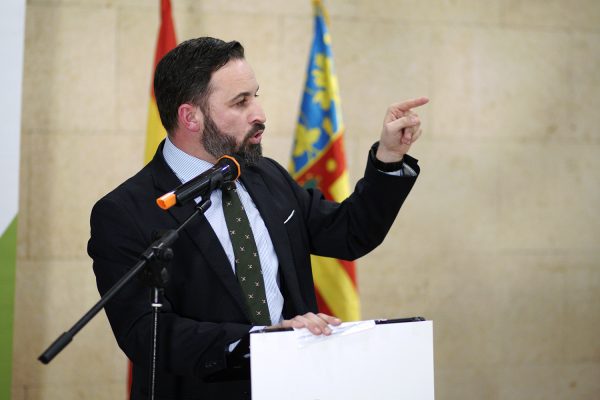
Sometimes bad people do good things. Spain’s neo-Francoist party Vox (Voice) has given Prime Minister Pedro Sánchez a majority for his plan to spend Spain’s €140 billion share of the EU’s €750 billion coronavirus recovery fund.
Vox had criticized the plan for its “opaque” oversight during a debate in Congress, but when it became clear the conservative People’s Party (PP) would vote against it, the far right spied an opportunity.
“We regret that in the worst moment of these 42 years of democracy, PP is not the opposition but the absolute destruction,” a Vox spokesman thundered.
That’s a little rich coming from a party that wants to reverse Spain’s democratization in important ways, including by abolishing regional autonomies, teaching a more Franco-friendly version of twentieth-century history in middle schools and weakening women’s rights.
But it is also an example of how multiparty democracy can make a country more governable.
Rise of others
For decades, Spain had essentially a two-party system with the Socialists and PP alternating in power.
Both struggled to adjust to the rise of other parties. When the PP lost its absolute majority in 2015, it could have formed a coalition with the Ciudadanos (Citizens), a new party on the center-right. Instead it formed a minority government that relied on the acquiescence of the Socialists, which only strengthened the perception that the old parties were trying to keep newcomers out.
When the Socialists won the election in 2019, but also fell short of a majority, they tried to browbeat the far-left Podemos (We Can) into voting for them without giving much in return. Only after a snap election returned more or less the same Congress did the Socialists agree to share power with Podemos.
Good sign
The two still don’t have a majority. Sánchez has relied on the support of Basque and Catalan nationalist parties to pass legislation, but the Republican Left, the largest Catalan party, voted with the Ciudadanos and PP on Thursday, sharing their criticism that the government’s economic rescue plan gives too much money to big business and too much power to the prime minister.
After the last election, I argued in World Politics Review that Spain should welcome its fragmented politics. The transition from two- to multiparty democracy can be bumpy ride, but coalitions are better than single-party governments. They enact reforms with broad support. Policy becomes more predictable. Politicians don’t have to pretend every election is a do-or-die event; they know that if they lose power this time, there’s a good chance they’ll end up in government again after the next election.
Vox has vilified Sánchez for doing deals with “communists” (Podemos) and “terrorists” (Basque separatists). The left has vilified Vox as fascists. But they can agree on the need to help businesses through the pandemic. It doesn’t matter if Vox was motivated by political calculation; the mere fact that it could do a deal with its ideological opposites is a good sign for Spanish democracy.
